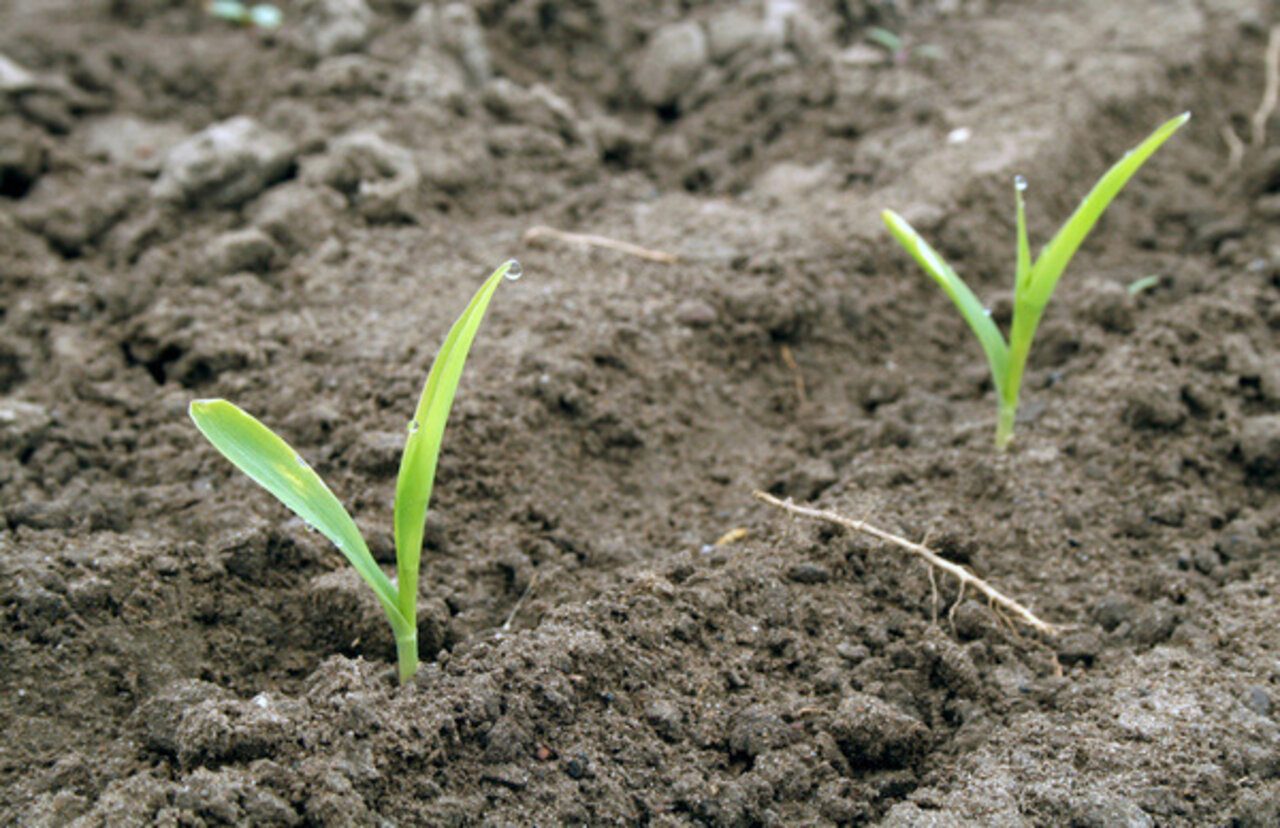Project
Possibilities for reducing the use of pesticides in arable farming

Possibilities for reducing the use of pesticides in arable farming
How do farmers reduce the use of pesticides and how high are their adaptation costs? These questions were investigated using the example of a model arable farm in the soil-climate region "Südhannover".
Background and Objective
Chemical-synthetic plant protection products are a significant component of conventional arable farming in Germany. They have helped to increase land productivity, reduce yield losses and thus made a significant contribution to food security. However, plant protection products (PPPs) have negative impacts on biodiversity. Moreover, their degradation products can be found in ground and surface waters, and they are associated with negatively affecting human health. Against this background, the aim of policy is to reduce the use of plant protection products and the associated risks.
Farms are faced with the questions of whether and how they can adapt their production systems and what costs will result. To achieve the goals, it is also necessary to compare concrete policy measures and the adaptation responses to them, taking agricultural expertise into account. So far, such studies are largely lacking. Therefore, the aim of this project is to work out which options arable farms have to achieve a reduction in the use of plant protection products, which costs result from this and how different policy options for achieving the goals are to be evaluated.
Approach
Based on a typical model farm in the soil-climate region "Südhannover" and using a focus group approach with farmers and advisors, the project investigated which operational adaptation measures could reduce the risks to humans and the environment associated with the use of pesticides by 25 or 50 % and which adaptation costs result from this. The risks from pesticides were determined with the help of the Pesticide Load Indicator (PLI). In order to be able to quantify the yield effects as a result of reduced PPP use, regional and national trial evaluations were consulted. In addition, the expected yield effects were differentiated between a best and worst case and a "normal year".
As farmers are in competition with their colleagues on the land and tenancy markets, they cannot afford to voluntarily switch to production systems that cause lower yields or cost increases. Policymakers must therefore change the framework conditions for all farms in such a way that the adaptation of production systems is either mandatory or economically viable. A wide range of policy measures are available to policymakers for this purpose. Following on from the results of the adaptation costs, it was therefore examined how policy-makers can use the "PLI" starting point to achieve their reduction target. In order to expose the selected policy measures and impact assessments to the critical judgement of the focus group, four concrete policy measures were developed that can achieve PLI reduction while addressing different secondary objectives. The measures examined include an individual farm PLI cap, a licensing system with tradable use rights, a government subsidy for low PLI hectares and an increase in crop protection product prices depending on PLI. It was assumed that the policy measures would be introduced throughout the European Union. The effects that can be expected on production, farm incomes and the administrative and control costs for farmers and the state were worked out in an impact assessment.
Our Research Questions
Which farm adaptation options can reduce the human and environmental risks posed by plant protection products by 25 and 50 %, respectively, and what are the resulting costs for farms?
What environmental policy measures can be taken to achieve the desired reduction targets and what consequences can be expected for production, income and administrative and control costs?
Results
In order to reduce the PLI by 25 %, farmers will first substitute more toxic active substances with those with a lower PLI. Similarly, weeds are increasingly regulated mechanically and total herbicides are replaced by mechanical tillage before summer harvests. If no crop-specific PLI reduction is required and alternative crops are available, farmers will substitute crops with a low Net Margin (DAKfL) per PLI unit used (e.g. rape with grain maize). If the PLI is halved, reduced fungicide and insecticide use across crops or later sowing dates in cereals are also suitable for reducing the risks from plant protection products.
With a crop-specific PLI reduction of 25 %, changes in the DAKfL of + 25 €/ha for sugar beet to - 60 €/ha for stubble wheat can be expected. If the PLI has to be reduced by 50 % for each individual crop, the range of adjustment costs between the crops increases further. While the PLI can be halved for rapeseed with costs of about 50 €/ha, the DAKfL for stubble wheat or winter wheat after silage maize decreases by about 150 €/ha.
At farm level, the results show that the more adaptation flexibility farmers are granted, the lower the adaptation costs. With a reduction of the PLI by 25 % and taking into account the active ingredient substitution, manageable adaptation costs of between about 10 and 20 €/ha can be expected, depending on the adaptation flexibility granted. The change in grain units produced (GE) varies between +4 and a maximum of -5 %. On the other hand, the adjustment costs increase disproportionately strongly with a PLI reduction of 50%, so that an operational DAKfL reduction of between about 80 and a maximum of 125 €/ha can be expected. With a PLI reduction of 50 %, the change in GE produced is between 0 and a maximum of -7 %.
In the case of an individual farm and at the same time crop-specific PLI ceiling, every farm must in principle reduce its PLI input if it does not yet meet the targets in the initial situation. This leads to an area-wide risk reduction without shifting the production of individual crops to third countries. However, the adjustment flexibility for farmers is comparatively low compared to other policy options. The control is carried out with the help of an online database. In contrast, an increase in PPP prices depending on the PLI has the advantage of not having to control all farms, but only "bottlenecks" such as traders and manufacturers of plant protection products. A disadvantage is the high negative income effect for the farms (> 220 €/ha) if the PLI is halved. In addition, readjustments of the levy level are to be expected in order to approach the reduction target. If the PLI use rights are distributed in a licensing system depending on the acreage, it is to be expected that crops with a high DAKfL per PLI unit used will be cultivated preferentially. Farm managers can decide on the basis of the market price for the tradable PLI use rights whether to use them themselves on the farm or sell them on the market. As a result, it is expected that PLI units will be saved, especially on marginal arable sites where this saving causes only low costs. The PLI units freed up there move primarily to regions where an above-average DAKfL per PLI unit can be produced. These are classically favourable locations for arable farming. The comparatively high administrative costs required for tradability must be viewed critically. For the state, this additional effort goes hand in hand with the advantage that the reduction target can be targeted precisely. If the state decides to promote low PLI hectare values with a premium, a negative income effect at farm level can be prevented, as they only participate if their costs are lower than the premium payment. The acceptance of the policy measure by farmers is high. A major challenge, however, is the controllability, as there are high incentives to undermine the system.
Thünen-Contact

Involved Thünen-Partners
Duration
8.2018 - 10.2022
More Information
Project status:
finished
Publications to the project
- 0
Dehler M (2024) Chemischen Pflanzenschutz sinnvoll reduzieren - aber wie? Rhein Bauernzeitg 78(9):16-17
- 1
Dehler M (2024) Nach der SUR ist vor dem Zukunftsplan. DLG Mitt(4, Sonderausg.):4-8
- 2
Dehler M (2023) 50% weniger - aber wie im Betrieb umsetzen? DLG Mitt(6:Sonderausg.):10-13
- 3
Dehler M (2023) Maßnahmen zur Reduzierung des Pflanzenschutzmitteleinsatzes - Anpassungsoptionen, Kosten und Möglichkeiten zur umweltpolitischen Steuerung. Braunschweig: Johann Heinrich von Thünen-Institut, 246 p, Thünen Rep 104, DOI:10.3220/REP1678173967000








